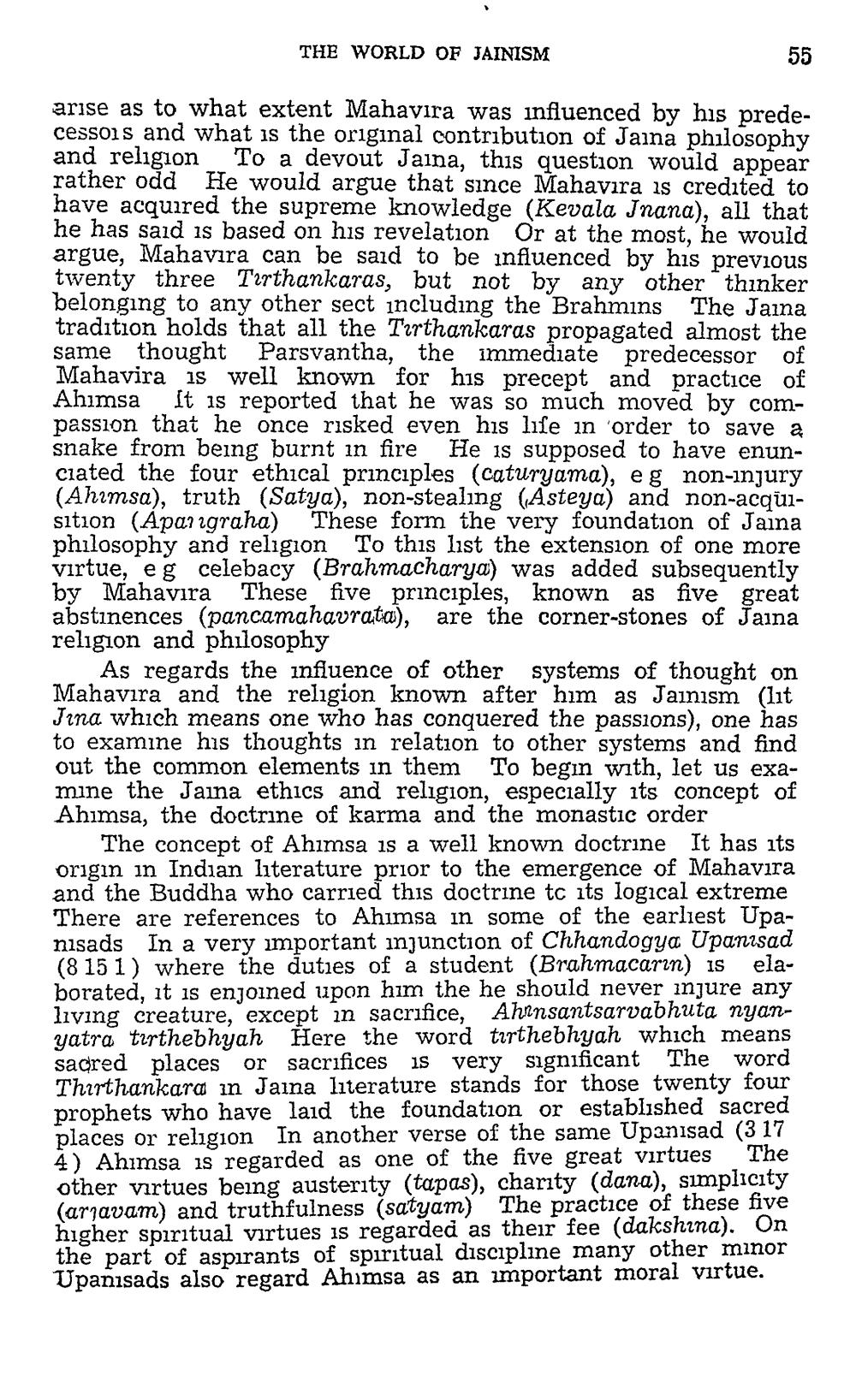________________
THE WORLD OF JAINISM
55
arise as to what extent Mahavira was influenced by his predecessors and what is the original contribution of Jaina philosophy and religion To a devout Jaina, this question would appear rather odd He would argue that since Mahavira is credited to have acquired the supreme knowledge (Kevala Jnana), all that he has said is based on his revelation Or at the most, he would argue, Mahavira can be said to be influenced by his previous twenty three Tirthankaras, but not by any other thinker belonging to any other sect including the Brahmins The Jaina tradition holds that all the Tirthankaras propagated almost the same thought Parsvantha, the immediate predecessor of Mahavira is well known for his precept and practice of Ahimsa It is reported that he was so much moved by compassion that he once risked even his life in order to save a snake from being burnt in fire He is supposed to have enunciated the four ethical principles (caturyama), eg non-injury (Ahimsa), truth (Satya), non-stealing (Asteya) and non-acquisition (Apangraha) These form the very foundation of Jaina philosophy and religion To this list the extension of one more virtue, eg celebacy (Brahmacharya) was added subsequently by Mahavira These five principles, known as five great abstinences (pancamahavrata), are the corner-stones of Jaina religion and philosophy
As regards the influence of other systems of thought on Mahavira and the religion known after him as Jainism (lit Jina which means one who has conquered the passions), one has to examine his thoughts in relation to other systems and find out the common elements in them To begin with, let us examine the Jaina ethics and religion, especially its concept of Ahimsa, the doctrine of karma and the monastic order
The concept of Ahimsa is a well known doctrine It has its origin in Indian literature prior to the emergence of Mahavira and the Buddha who carried this doctrine to its logical extreme There are references to Ahimsa in some of the earliest Upanisads In a very important injunction of Chhandogya Upanisad (8 15 1) where the duties of a student (Brahmacarin) is elaborated, it is enjoined upon him the he should never injure any living creature, except in sacrifice, Ahinsantsarvabhuta nyanyatra tirthebhyah Here the word tirthebhyah which means sacred places or sacrifices 1S very significant The word Thirthankara in Jaina literature stands for those twenty four prophets who have laid the foundation or established sacred places or religion In another verse of the same Upanisad (3 17 4) Ahimsa is regarded as one of the five great virtues other virtues being austerity (tapas), charity (dana), simplicity (arjavam) and truthfulness (satyam) The practice of these five higher spiritual virtues is regarded as their fee (dakshina). On the part of aspirants of spiritual discipline many other minor Upanisads also regard Ahimsa as an important moral virtue.
The




